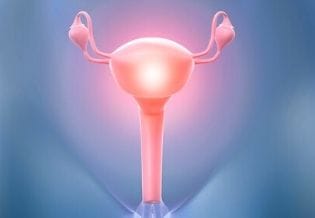Submit Manuscript
Share clinically grounded research that advances women's reproductive health, OB-GYN care, and patient outcomes.
Submit to the Journal of Women's Reproductive Health
JWRH is a peer reviewed, open access journal dedicated to evidence that improves clinical outcomes, patient care, and decision making across obstetrics, gynecology, sexual and reproductive medicine, and women's health services. We welcome manuscripts that are practice relevant, outcomes focused, and designed to improve real world care.
Authors benefit from global visibility, rigorous editorial standards, and a commitment to clinical impact. If your work supports safer care, better patient experience, or more equitable reproductive health services, JWRH is the right home for your research.
Before you submit, confirm that your manuscript aligns with the JWRH clinical scope. We prioritize evidence that is relevant to patient care, clinical outcomes, and OB-GYN practice.
- Does the study address women's reproductive health, OB-GYN, or sexual and reproductive medicine?
- Are outcomes tied to patient care, safety, quality of life, or clinical decision making?
- Is the work grounded in real world practice or care delivery settings?
- Are methods and reporting standards strong enough for clinical interpretation?
- Does the manuscript contribute to equitable access or improved care pathways?
Original Research
Clinical or population based studies with measurable outcomes, patient centered endpoints, and clear practice implications.
Clinical Trials
Randomized or pragmatic trials that evaluate interventions, diagnostics, or care models in OB-GYN and reproductive health.
Systematic Reviews
Evidence syntheses and meta analyses that guide clinical care, policy, or guideline development.
Guidelines and Consensus
Evidence based guidelines and consensus statements that improve patient care, safety, or service delivery.
Case Series and Reports
Case based submissions with clear learning value and clinical relevance to women's reproductive health.
Health Services Research
Quality improvement, care pathway design, and implementation research that improves outcomes.
JWRH welcomes manuscripts across the full spectrum of women's reproductive health. Topics include maternal fetal medicine, gynecologic surgery, infertility, contraception, sexual health, menopause, urogynecology, gynecologic oncology, reproductive genetics, and mental health as it relates to reproductive care. We are equally interested in hospital, community clinic, rural, and global health settings where care models are tested and outcomes are measured.
Interdisciplinary work is encouraged, including collaborations with primary care, endocrinology, oncology, pediatrics, psychiatry, and public health. Manuscripts that evaluate care pathways, referral models, or care coordination across services are in scope when they demonstrate improved patient care and clinical outcomes.
To improve translation into practice, JWRH prioritizes measurable outcomes. Report the patient outcomes that matter most: safety, symptom relief, fertility success, maternal morbidity, neonatal health, mental health wellbeing, and quality of life. Studies that include patient reported outcomes or shared decision outcomes are highly valued.
- Maternal and neonatal morbidity, mortality, and complications.
- Fertility outcomes, time to pregnancy, and treatment success.
- Surgical outcomes, recovery time, and patient satisfaction.
- Symptom improvement and quality of life measures.
- Access, adherence, and equity related outcomes.
Strong submissions are clear, concise, and focused on clinical outcomes and patient care. Provide enough context for clinicians to apply your findings and ensure that methods and outcomes are transparent. Manuscripts should describe study settings, patient populations, and outcomes in a way that supports clinical interpretation.
When describing results, include absolute and relative effects, confidence intervals, and clinically meaningful differences when applicable. Discuss limitations transparently and explain how your findings inform real world care. Clear links between evidence and patient outcomes help reviewers assess scope fit and clinical impact.
- Follow the Instructions for Author for structure, formatting, and required sections.
- Clearly describe the clinical problem, patient population, and care setting.
- Highlight outcomes that matter to patients and clinicians, including safety, quality of life, and treatment effectiveness.
- Include a concise cover letter explaining the contribution to women's reproductive health and OB-GYN practice.
- Use tables and figures to present outcomes and patient centered measures clearly.
JWRH follows COPE guidance and requires documentation of ethics approval for studies involving human participants. Provide informed consent details and describe how privacy and confidentiality are protected. Clinical trials must be registered in a public registry, and trial registration numbers should be included in the manuscript.
Our editorial standards emphasize transparency, integrity, and patient safety. Authors should disclose conflicts of interest, funding sources, and author contributions, and ensure that acknowledgments accurately reflect support. Refer to the Editorial Policies page for detailed expectations and compliance requirements.
We encourage data availability statements for all submissions. When data sharing is possible, provide repository links or access conditions. If data are restricted due to privacy or regulation, explain the limitation and describe how qualified researchers may request access.
To improve rigor and reproducibility, use recognized reporting standards. These guidelines help reviewers assess clinical relevance and strengthen confidence in outcomes.
- CONSORT for randomized trials.
- STROBE for observational studies.
- PRISMA for systematic reviews and meta analyses.
- CARE for clinical case reports.
Use this checklist to reduce delays and ensure that reviewers can focus on your clinical outcomes and patient care contributions.
- Manuscript file with title page, structured abstract, and keywords.
- Clear description of patient population, care setting, and outcomes.
- Ethics approval, consent statements, and trial registration where required.
- Data availability statement and repository links when applicable.
- Conflict of interest disclosure and funding statement.
- Cover letter that summarizes clinical relevance and scope fit.
Authors may submit through ManuscriptZone or the journal submission form. Submissions are acknowledged within 72 hours, and authors receive updates through the editorial process.
Compile the manuscript, figures, tables, ethics documentation, and a cover letter that highlights clinical outcomes.
Use ManuscriptZone or the submission form to upload your files.
Monitor your submission, respond to editorial queries, and provide revisions as requested.
Each manuscript undergoes editorial screening for scope fit, clinical relevance, and ethical compliance. Suitable submissions are sent for peer review by experts in obstetrics, gynecology, sexual and reproductive medicine, and public health. Reviewers evaluate study design, outcome reporting, and the quality of clinical interpretation.
Decisions are communicated with clear feedback and guidance. We value timely, constructive review that helps authors strengthen patient centered conclusions and improve clinical impact.
Revisions are common and should address reviewer comments point by point. Provide a response letter that explains updates, highlights changes to outcomes reporting, and clarifies clinical implications. The editorial team may request additional analyses or statistical review to ensure that evidence is robust and ready for practice.
Successful submissions connect evidence to patient care. Make it easy for clinicians to understand how findings can improve outcomes, safety, or patient experience. Explain why your results matter for practice, especially in real world care settings.
- Use patient centered language and prioritize clinically meaningful endpoints.
- Describe care pathways, protocols, or decision points that your findings influence.
- Include implications for quality improvement, equity, and service delivery.
- Highlight relevance to OB-GYN teams, midwives, nurses, and allied clinicians.
We welcome manuscripts that incorporate patient voice, community partnerships, or shared decision making frameworks. Research that addresses disparities in reproductive health outcomes or improves access for underserved groups aligns strongly with our mission. Describe how your study accounts for equity, cultural responsiveness, and patient experience in both design and interpretation.
Publishing open access ensures that clinicians, researchers, and patients can access your findings without barriers. JWRH supports global reach through DOI assignment, structured metadata, and indexing pathways that improve discoverability for patient care and policy audiences.
Open access allows evidence to reach frontline clinicians, trainees, and patient advocates who influence everyday reproductive health decisions.
JWRH publishes under clear licensing terms that protect author rights while enabling reuse for education and clinical practice. Review the Copyright License policy and ensure that permissions are in place for any third party material. Data sharing expectations are described on the Data Archiving Permissions page.
Open access publishing is supported through article processing charges. Detailed information is available on the Article Processing Charges page, including waiver considerations and guidance for authors.
Accepted manuscripts proceed to copyediting, proof review, and final publication. Authors receive proofs for review, and final articles are published online with DOI assignment. We encourage authors to share published work with clinical networks, professional associations, and patient advocacy communities.
Our production team supports clear figure presentation and accessible language for readers. Once published, your article is indexed and shared through journal channels to improve visibility among clinicians, researchers, and policy stakeholders.
For submission questions, contact the editorial office at [email protected]. Our team can help with scope fit, formatting, and submission logistics.
Submit your manuscript to JWRH today
Advance women's reproductive health through research that improves clinical outcomes and patient care.


